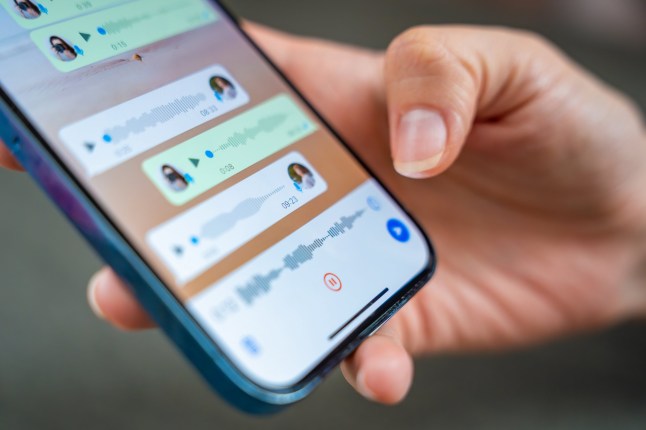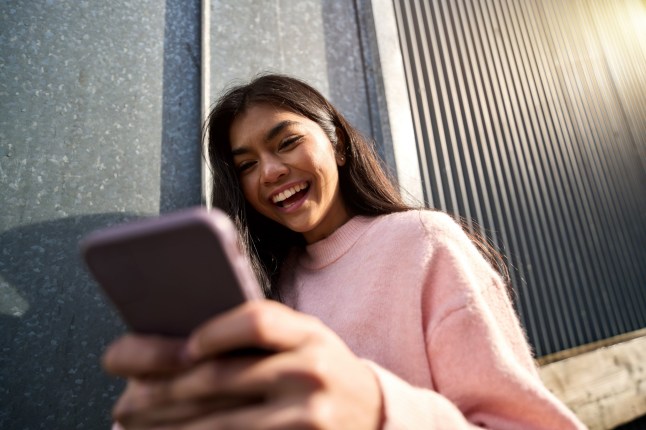
There are those of us who only type messages. One text at a time. Drip, drip, dripping a story to our friend.
And then there are those who like to send a voice-note – usually because we can’t be bothered typing and have a lot we want to say but we want to say it without interruption.
But how much of those lengthy monologues is actually heard?
According to one phone company, 80% of people don’t actually finish listening to what you’ve been saying.
Introduced in 2013, some seven billion audio messages are sent worldwide every day.
But not all mobile users are equally delighted to receive them.
While Gen Z are the most profilic voice-note users, sending the highest number and longest length audio messages, Gen X send the fewest and shortest clips, a study has found.
Now, researchers believe they have pinpointed the ideal length of an audio message.
Britain’s Gen X, aged 60 to 78, are the quickest to cut-off a voice-note at two minutes and 30 seconds on average.
Meanwhile Gen Z, the nation’s youngest generation of adults at ages of between 18 and 27, listen for the longest at three minutes and 36 seconds before quitting.
How often do you use voice-notes?
- Every day
- Occasionally
- Never
Not only did it become clear how long people listen to your messages for, they also found who’s most likely not to listen.
Older people (over 60) were more likely to cut you off after two and a half minutes while the younger Gen Zs among us last for an extra minute.
And while it’s good news for mums and children – around 44% of their messages are listened to – your boss may feel a little put out with only one in five messages being heard through to the end.
Gen Z voice-notes average 12 minutes and 24 seconds, suggesting two thirds (3.4) of most audio messages sent by young adults to peers and pals go unheard.
Boomers in contrast send far shorter voice-notes, averaging two minutes and 18 seconds.
Dr Wei Luo, a psychology expert at the University of Cambridge, told Metro that one reason that explains the disparity between Gen Z and Gen X is they may use WhatsApp for different reasons.

She said: ‘As digital natives, WhatsApp is more than just a messaging tool or something they [Gen Z] use for exchanging information.
‘Beyond that, it’s very important for building up their social lives.’
Dr Luo said research conducted by the university found that the more young people use social media, the happier they are with their relationships with peers.
She added that the way Gen Z typically consume information, such as through TikTok videos and Instagram reels, ‘plays a role’ in explaining why youngsters prefer to exchange audio messages instead of texts.
But Talkmobile believes it has found the voice-note ‘sweet spot’.
Patience runs out at precisely three minutes and six seconds for the average Brit – suggesting an audio message any longer will not be heard in full.
Stuart Wilson, of Talkmobile, said: ‘A short, snappy voice-note is the ideal way to get your message across – anything longer, just give them a call.’
Get in touch with our news team by emailing us at webnews@metro.co.uk.
For more stories like this, check our news page.









